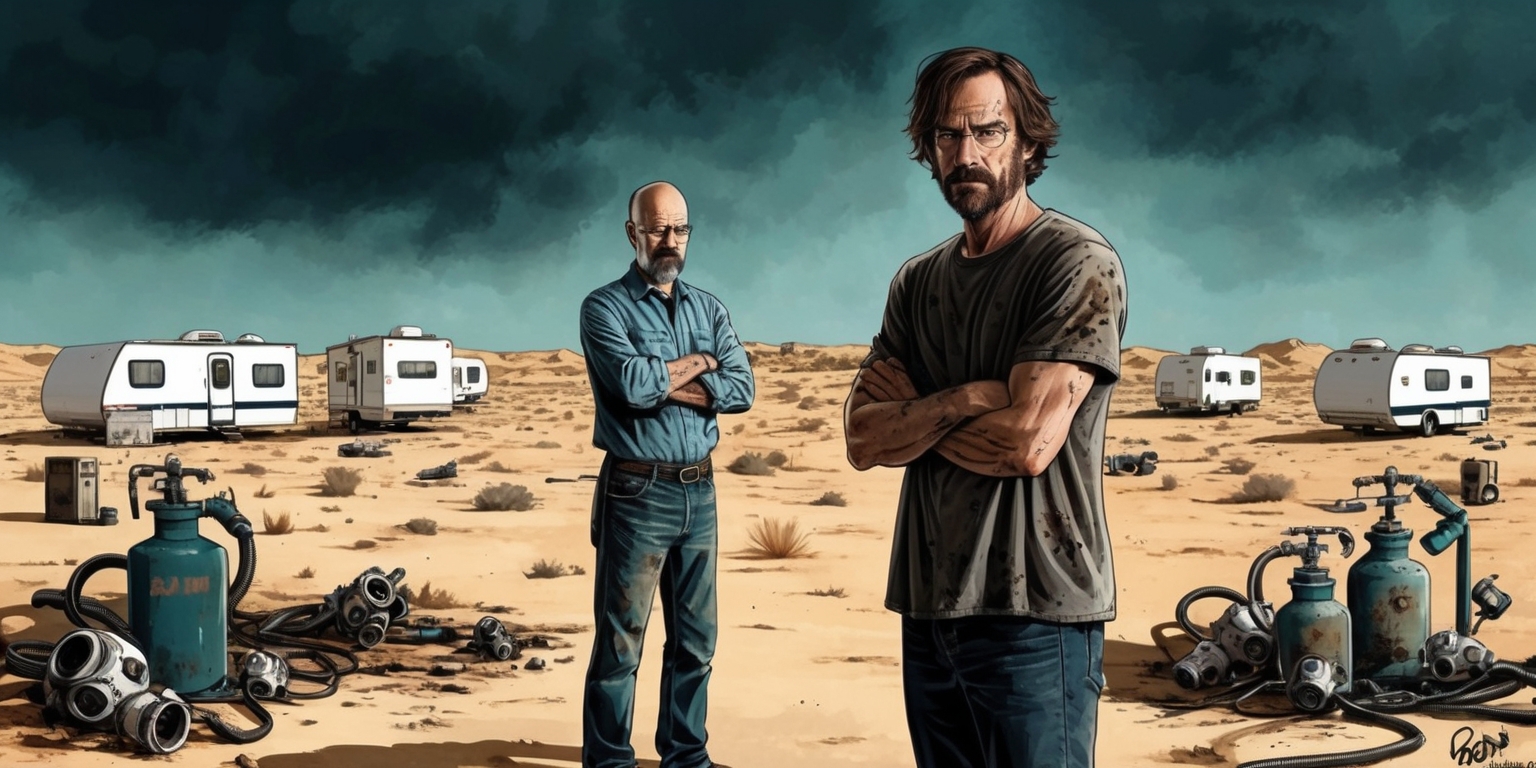Unpacking Skyler White: The Misunderstood Catalyst in Breaking Bad's Moral Landscape
- Jan 06, 2025
- 0

In the realm of television drama, few shows have captivated audiences like Vince Gilligan's Breaking Bad. Renowned for its intricate storytelling and complex characters, the series has redefined notions of morality and villainy. Yet, amidst the heroics and chaos, one character stands out as a polarizing figure: Skyler White, the wife of the show's protagonist, Walter White. While many viewers celebrated Walter's journey from mild-mannered chemistry teacher to a powerful drug kingpin, Skyler became an unlikely target of disdain. Gilligan himself later reflected on this paradox, revealing the nuances behind Skyler's character and the unfair backlash she faced. This article delves into the dynamics of the narrative that led to Skyler's vilification, exploring the layers of storytelling that shaped public perception of her character.
Understanding Character Dynamics
The intricate web of character relationships in Breaking Bad creates a dynamic landscape where motives and actions are constantly scrutinized. At the heart of the story is Walter White, whose transformation raises questions about morality, right and wrong. However, this central narrative often overshadowed the experiences and reactions of those around him, particularly Skyler.
The Rise of Skyler White
From the onset, Skyler was introduced as a dedicated wife and mother, navigating the challenges of Walter's cancer diagnosis. Her initial portrayal evoked empathy, as she embodied the struggles of a family in crisis. Yet, this sympathetic beginning set the stage for her gradual transformation into a figure many would come to loathe.
The Evolution of Perception
As the series progressed, viewers witnessed Skyler's character shift. Faced with Walter's increasingly questionable choices, she began to voice her dissent, standing up against his criminal activities. However, rather than recognizing her bravery, many fans perceived her actions as nagging or unsupportive.
The Rigged Narrative

Vince Gilligan acknowledged that the storytelling was "rigged" in favor of Walter. The series framed events through his perspective, casting Skyler's reactions in a less favorable light. This one-dimensional viewpoint added to the impression that she was an antagonist in her husband’s story.
Realistic Reactions
Skyler's responses to Walter's choices resonate with realism, highlighting the disbelief and frustration any spouse might feel. Yet, these relatable emotions became the basis for her criticism. This disconnect reveals the dangers of a narrative that prioritizes one character’s perspective above all else.
Anna Gunn's Experience
Anna Gunn, the actress who portrayed Skyler, faced immense scrutiny from the audience. Despite delivering a powerful performance, she was often left questioning the reasons behind the vitriol directed at her character. Her experience points to a broader issue of how female characters are seen and judged in television.
Skyler as a Barometer
Skyler's role extends beyond that of a typical supporting character; she serves as a moral barometer for Walter's actions. When she challenges him, it underscores the ethical decline of the protagonist, further provoking audience ire towards her rather than empathy.
Inverted Heroism
Redefining the hero-villain dichotomy, Skyler proves to be an unexpected hero within the narrative. By standing up to Walter and confronting his choices, she embodies the voice of reason in a story dominated by moral corruption. This inversion complicates the audience's understanding of heroism and villainy.
Societal Reflections
Skyler’s backlash mirrors real-world attitudes toward women who challenge masculine authority. The intense scrutiny faced by her character serves as a stark reminder of the double standards often encountered by female figures in media, reinforcing gender biases within storytelling.
From Villain to Complex Character
Over time, many fans underwent a transformation in their perception of Skyler. As they reevaluated the series' events and came to understand her perspective, the character evolved from a symbol of annoyance to one of depth and complexity. This journey illustrates the power of time and reflection in shaping opinions.
Skyler’s Role in Walter’s Downfall
While Walter's actions drive the narrative, Skyler's role as a voice of accountability is crucial. Her challenges to his decisions serve as a cue illustrating the potential consequences, and ultimately push Walter further down a path of destruction. The antagonism towards her underscores the difficulty in recognizing accountability in storytelling.
Shifting Perspectives in Retrospect
Reflecting on the series, Gilligan expressed curiosity about the audience's shift in perception. He emphasized the idea that understanding the motivations behind a character’s actions can lead to a more nuanced view, revealing the inconsistencies in how characters are judged based on the narrative's perspective.
The Legacy of Skyler White
Skyler White remains a contentious yet fascinating part of Breaking Bad's legacy. As viewers engage with the show's themes years after its conclusion, the discourse surrounding her character might evolve even further, highlighting changes in societal attitudes toward gender and morality.
The Impact of Audience Interpretation
The divisive reception of Skyler White serves as an analysis to explore the wider consequences of audience engagement with television narratives. It highlights how viewer interpretations can shape a character's legacy, often based on their alignment or opposition to the protagonist's morality.
Final Thoughts on Character Complexity
Breaking Bad’s intricate character development and moral uncertainty continues to engage viewers, igniting conversations on the nature of heroism and villainy. Skyler White's experience serves as a lens through which viewers can examine their biases, challenge conventional narratives, and reflect on the implications of perspective in storytelling.
Streaming audiences looking to revisit the complexities of Skyler’s character and the rich storytelling woven throughout Breaking Bad can access the series on various platforms, such as Netflix. Engaging with the show once more may reveal layers of insight previously overlooked, illustrating the timeless relevance of its narrative themes.
